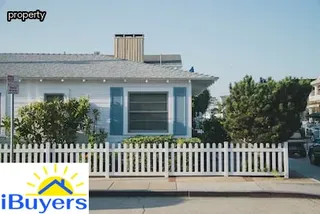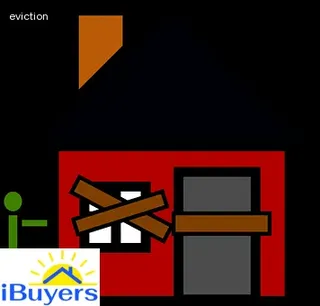Navigating Georgia laws for landlords can be a difficult task, especially when it comes to understanding the definition of tenant abandonment. When a tenant abandons their rental property, they forfeit all rights to the residence and leave without providing written notice or paying any further rent.
In order for a landlord to consider a tenant as having abandoned the property, they must have clear evidence that the tenant has no intention of returning and that they have voluntarily vacated the premises. This can include signs such as mail accumulating in the mailbox, parking notices on cars left on the property, utilities being turned off by the tenant, and personal belongings being removed from the rental unit.
A landlord must also complete an affidavit or sworn statement of abandonment with their local court before they are legally allowed to reassign possession of the property to another tenant or repossess it themselves. It is important for landlords to remember that in order for an abandonment to be considered legal under Georgia law, there must be proof that all attempts have been made in attempting to locate and contact their former tenants prior to taking action.

When a tenant abandons property, it is important for landlords in Georgia to understand the potential consequences of such an action. Depending on the situation, landlords may be responsible for disposing of any abandoned property, as well as covering any unpaid rent and fees associated with the rental agreement.
Furthermore, if the tenant left behind personal items that are not considered part of their security deposit, the landlord must take reasonable measures to store them in a secure location for at least 30 days before disposing of them. If there is damage to the rental unit or unpaid utility bills from when the tenant was there, it is up to the landlord to make sure these payments get taken care of.
Ultimately, it is important for landlords in Georgia to familiarize themselves with all local laws and regulations regarding property abandonment so they can properly navigate such situations if they should arise.
When it comes to navigating Georgia laws for landlords, one of the most difficult things to determine is whether a tenant has abandoned your property. As a landlord, it’s important to know when a tenant has vacated the premises so you can take the necessary steps to protect your property.
To figure out if a tenant has truly left behind their belongings and abandoned your property, there are several factors you should consider. You should examine whether rent or other payments are being made, if utilities are still running, and if any contact has been made with the tenant.
Additionally, checking in on the property regularly can help you determine whether anyone is living there. If all of these factors indicate that the tenant has left without notice, then it’s likely that they have abandoned your property.
It’s important to remember that the law requires landlords to make reasonable efforts to contact tenants before considering them as having abandoned their rental agreement before taking any further action.

When tenants abandon their property, it can be a tricky situation for landlords. Unauthorized occupancy of the property can put them in a difficult legal situation if they don't take the proper steps to address the issue.
Georgia laws provide some guidance on what to do when faced with unauthorized tenancy, but navigating these laws can be confusing and overwhelming. It's important for landlords to understand their rights and legal obligations in order to protect themselves and their property.
The first step is to check local and state regulations for any specific requirements related to abandonment. Additionally, landlords must inform the tenant of their intentions to reclaim the unit before attempting to enter or change locks.
Once inside, if it becomes apparent that the tenants have abandoned the unit, landlords should take precautionary measures such as securing any valuables left behind by former tenants or changing locks so that no one else can enter without permission. It's also essential for landlords to document all visits and attempts at contact with former tenants in case of any future disputes or legal matters.
Navigating Georgia Laws for landlords can be a challenge when tenants abandon their property. It is essential for landlords to understand the difference between tenant abandonment and eviction in order to properly address the situation.
Tenant abandonment occurs when the tenant leaves without providing written notice, while eviction is initiated by the landlord through a court-ordered process. When tenants abandon their property, landlords must take certain steps to legally reclaim possession of the premises.
This may include notifying tenants in writing that they have abandoned the property, filing a dispossessory affidavit with the court, and obtaining a Writ of Possession from a judge. Landlords also need to be aware of any outstanding rent owed or other costs associated with re-renting or repairing their unit before they can claim ownership again.
Understanding Georgia laws regarding landlord-tenant relationships is key to navigating these situations and ensuring both parties are fairly treated.

As a landlord in Georgia, it is important to be aware of the laws that protect you in the case of tenant abandonment. If a tenant leaves without giving proper notice or paying their rent, you have the right to enter the property, regain possession, and ultimately remove any abandoned items.
You also have the right to file an eviction action if necessary. Furthermore, Georgia law allows landlords to pursue a claim for unpaid rent due from the former tenants.
However, if you intend to keep any of these items as compensation for the unpaid rent or other costs incurred during the tenancy period, you must follow specific rules and regulations outlined by the state. These include getting a court order for possession of all abandoned items and providing sufficient notice before disposing of any personal property left behind by tenants.
It is also important for landlords to be aware that most abandoned items are subject to lien rights by creditors. Knowing your legal rights as a landlord can help ensure that all procedures are followed correctly when navigating Georgia laws for tenant abandonment.
Navigating state laws regarding property abandonment can be a difficult process for landlords in Georgia. It is important to understand the rules and regulations that govern the situation when tenants abandon their property.
Landlords should look into any applicable laws in their county or municipality, as well as research state statutes that may provide guidance. Landlords must also take into account any contractual agreements they have with their tenants, such as lease agreements or other rental contracts.
In addition, landlords must ensure that all necessary paperwork is completed and filed appropriately. If the property has been abandoned for a period of time, landlords may need to seek legal guidance to determine if the tenant has officially vacated the premises.
Depending on how long the tenant has been gone, landlords may need to send a formal notice of eviction in order to reclaim possession of their property. While navigating these laws can be tricky, understanding what needs to be done and following all necessary steps will help ensure that both landlord and tenant are properly protected under Georgia law.

When it comes to navigating Georgia laws for landlords, minimizing the risk of property abandonment is an important consideration. To reduce the chances that tenants will abandon their rental property, landlords should ensure that they have a comprehensive rental agreement in place.
This document should include clear expectations regarding rent payment and other obligations, such as maintenance and repairs. Additionally, it is important for landlords to screen potential tenants thoroughly before signing a lease – this can help identify any potential issues early on in the process.
Landlords should also stay up-to-date on all relevant Georgia laws and regulations so that they are aware of their rights and responsibilities. Furthermore, it’s essential to maintain an open line of communication with tenants throughout the tenancy – regular check-ins can be beneficial for both parties.
Finally, setting up an automatic rent payment system can help promote timely payments from tenants and discourage them from abandoning the property when times get tough or they can no longer afford their rent.
Dealing with tenant abandoned property can be a complicated process, especially when navigating Georgia laws. It is important to document each step of the process in order to ensure compliance and protect yourself from any potential legal issues.
One of the first steps is to notify your tenant in writing that they have left their property behind and must either remove it or allow for it to be disposed of. This notice should include details regarding when and how the tenant can reclaim their belongings if they wish.
If the tenant does not respond, you will need to take inventory of the items left behind by documenting each item and its condition. You may also want to photograph any damage caused by the tenant for further documentation.
Once you have taken inventory, you must store these items in a secure location and make sure that they cannot be accessed or damaged by anyone else. Finally, it is important to keep detailed records of all expenses associated with dealing with abandoned property such as storage fees or disposal costs.
Following these steps can help you navigate Georgia laws while ensuring that your rights as a landlord are protected.

When a tenant abandons a unit, Georgia law requires landlords to take appropriate steps to collect the tenant’s personal belongings and return them to their rightful owner. Landlords should consider the safety of themselves and the property when collecting abandoned items, as well as applicable laws for dealing with abandoned property in the state.
Before entering an abandoned unit, landlords must give tenants at least seven days written notice that they intend to reclaim any personal belongings left behind. This notice should be sent via certified mail or posted on the door of the abandoned property.
Landlords must also store any collected items in a safe place until such time as they are returned to their rightful owners. Additionally, it is important for landlords to keep careful records of all personal items collected from an abandoned unit, including photographs and descriptions of each item.
If tenants fail to claim their belongings within 30 days of the landlord collecting them, then those items become the responsibility of the landlord who must dispose of them according to local laws and regulations.
When tenants abandon property, Georgia landlords must determine whether to keep or dispose of the left-behind items. Georgia law does not require a landlord to store or return abandoned property, but there are certain steps landlords should take in order to ensure they are following appropriate regulations when making this decision.
Landlords should first assess if any personal belongings have been left behind, as these items cannot be disposed of without permission from the tenant. If the tenant has not contacted the landlord within a reasonable amount of time, landlords can then move on to assessing the type and value of any remaining property.
If necessary, landlords can consult an attorney for guidance on how to handle any potential disputes with former tenants over discarded items. Additionally, when disposing of any property it is important for landlords to follow all local and state laws regarding disposal methods such as donation, recycling or transferring ownership rights.

When a tenant abandons property, landlords in Georgia need to be aware of their legal responsibilities. Under the Georgia Landlord Tenant Act, landlords can enter the premises to take possession of the abandoned property if they have been given proper notice and if it is necessary for them to do so.
After taking possession of the abandoned property, landlords must notify the tenant either by certified mail or through posting on the premises that they are claiming the abandoned items. The landlord must give the tenant at least 30 days to come back and reclaim their belongings before disposing of it.
During this time period, landlords should keep an inventory of all abandoned items and store them in a safe location until such time that they are disposed. If there is any money left behind by the tenant, it can be used towards rent owed or other fees associated with their lease agreement.
It is important for landlords to remain in compliance with Georgia laws when dealing with any type of property left behind by tenants.
When a tenant abandons property, it can be difficult to know what to do with the unwanted personal belongings they left behind. Landlords in Georgia must navigate state laws and regulations carefully in order to properly dispose of the items.
Unfortunately, not doing so can result in potential damages caused by the abandoned items. For example, if furniture or other belongings are not removed right away, there is a risk that they may become damaged due to weather exposure or other conditions.
Additionally, without proper removal and disposal procedures, the abandoned items may cause safety hazards that could lead to personal injury or property damage. Further complicating matters is the fact that landlords may be held responsible for any damages or injuries caused by the belongings of their former tenants.
It is therefore important for landlords in Georgia to understand their legal obligations and take action quickly when tenants abandon property on their premises.

When tenants abandon their rental unit, landlords must navigate the laws of Georgia to determine what steps to take next. Unpaid rent and utility bills may be a concern for landlords in these situations.
According to Georgia law, if a tenant abandons their rental unit without giving written notice, then the landlord has the right to enter the premises, change the locks, and remove all personal items that remain inside. To recoup unpaid rent or utility bills from an abandoned rental unit, a landlord must send a letter by certified mail notifying the tenant of any past due amounts.
If after 14 days no payment is received, then landlords are allowed to pursue legal action against their former tenant. Landlords may also claim any security deposits held by them as satisfaction for any unpaid balances owed by the tenants.
In addition, landlords can place liens on any property owned by their tenants in order to collect unpaid debts from them. Ultimately it is important for landlords in Georgia to be familiar with local laws so they can properly handle unpaid rent and/or utility bills when a tenant leaves an abandoned property.
When a tenant abandons the property before their lease has expired, it can be difficult for landlords in Georgia to decide how to handle the situation. To ensure that landlords are not financially liable for any damages done to the property, they must use security deposits in accordance with state laws.
Georgia law requires that landlords provide tenants with an itemized list of any deductions made from their security deposit, and this list must be signed off on by both parties. It is important that landlords keep detailed records of any expenses made in order to deduct them from the security deposit.
Landlords must also return all remaining funds within one month of the tenant vacating the premises. If a landlord fails to provide an itemized list or return funds on time, they could be held liable for treble damages up to two times the amount of the original security deposit as well as attorney fees.
Landlords should always consult with an attorney if they are unsure about how to navigate these laws and regulations in order to protect themselves from potential legal action.

When it comes to navigating the laws of Georgia for landlords dealing with tenants who have unexpectedly abandoned property, local resources can be a major asset. Working with local government offices, such as a mayor’s office or county commission, is key to understanding the legal steps landlords must take to protect their rights and ensure that the vacant property is properly handled.
Additionally, it is important to contact the police department in case there are any security issues that need to be addressed during this process. Landlords should also consult their county assessor’s office in order to understand current tax regulations related to tenant move-out situations and any changes in ownership of the property.
Finally, reaching out to real estate attorneys is recommended for more complicated cases where legal proceedings may be necessary. By utilizing local resources and understanding Georgia law, landlords can successfully manage a tenant move-out situation without facing any unnecessary challenges.
When a tenant unexpectedly moves out, landlords must assess the damage done to their property. This includes evaluating the condition of both the inside and outside of the building, as well as inspecting any rental equipment or furniture that may have been left behind.
Landlords should also take steps to minimize future risks of unexpected vacancies. This may include screening tenants more closely or ensuring that all leases are in writing with clear expectations for move-out procedures.
In addition, landlords should be aware of possible pest infestations that may occur after an unexpected move-out and take steps to prevent them. Finally, excessive trash and debris can often be left in the unit following an unexpected move-out; landlords should make sure to properly dispose of these items in accordance with local laws and regulations.
In Georgia, a tenant must be gone for at least 7 days before the landlord can consider the property abandoned. For landlords, navigating Georgia laws when it comes to abandoned property can be a tricky process.
It is important to understand that the law requires tenants to notify their landlords of their intent to vacate in writing, and then they must remain away from the premises for at least 7 days in order for it to be considered abandoned. Landlords should also keep in mind that if a tenant does not provide written notice of their intention to leave, but rather just leaves without warning, the landlord still has an obligation to make reasonable efforts to contact them and receive written notification.
If after 7 days have passed and there is still no written notification from the tenant, then the property may officially be considered abandoned by law.

In Georgia, landlords have certain expectations and responsibilities when it comes to dealing with abandoned property left behind by tenants. However, there are some things a landlord cannot do in Georgia and it's important to be aware of these laws so that both the tenant and the landlord can navigate the situation properly.
A landlord cannot enter the property without first providing advance notice to the tenant or obtaining a court order. Additionally, they cannot change or remove locks without written consent from the tenant or an order from a court.
Landlords also cannot dispose of personal belongings without going through proper legal channels first. All of these restrictions mean that a landlord must take extra care when navigating Georgia laws for landlords when handling abandoned property.
The 7 day notice to vacate in Georgia is a requirement for landlords when tenants abandon a property. According to Georgia laws, landlords must provide the tenant with a written notice to vacate the rental property within seven days of discovering that the tenant has left the unit or abandoned it.
The notice must include the landlord's name and address, the full amount due, and a statement that if the tenant does not move out within seven days, eviction proceedings will begin. Furthermore, this notice must be sent via certified mail or posted on the rental premises as well as delivered to any person residing at the property who is over 18 years of age.
A copy of this notice must also be filed with the court before further action can be taken against any delinquent tenant. Landlords should familiarize themselves with these procedures in order to avoid problems such as potential legal issues arising from an improperly notified tenant.
In Georgia, a 3 day notice to vacate is a written document that is used by landlords to inform tenants of their intention to terminate the lease. When tenants fail to comply with the terms of the lease, such as when they abandon the property without giving proper notice, then the landlord can issue this notice.
The 3 day notice must include specific language and information, including the date when it was issued and how long the tenant has before they must vacate the premises. The notice also must be delivered in person or sent via certified mail so that it can be tracked and documented.
Additionally, if a landlord uses a legal process server to deliver this document, then it should be accompanied by an affidavit of service which will prove delivery of the document. If a tenant fails to comply with this notice within three days, then eviction proceedings may begin.
A: The Lessor should follow the Georgia Abandoned Property Law, which requires that notice be given to the tenant prior to disposing of any personal property left on the premises and that any remaining security deposit is returned within one month after abandonment.
A: In Georgia, landlords must begin the eviction process by serving the tenant with a written notice of termination. The notice must include information regarding the tenant’s right to reclaim any personal property or fixtures left on the premises after abandonment. If the tenant does not respond within 7 days of receiving notice, then the landlord may take possession of the premises and dispose of any remaining property.